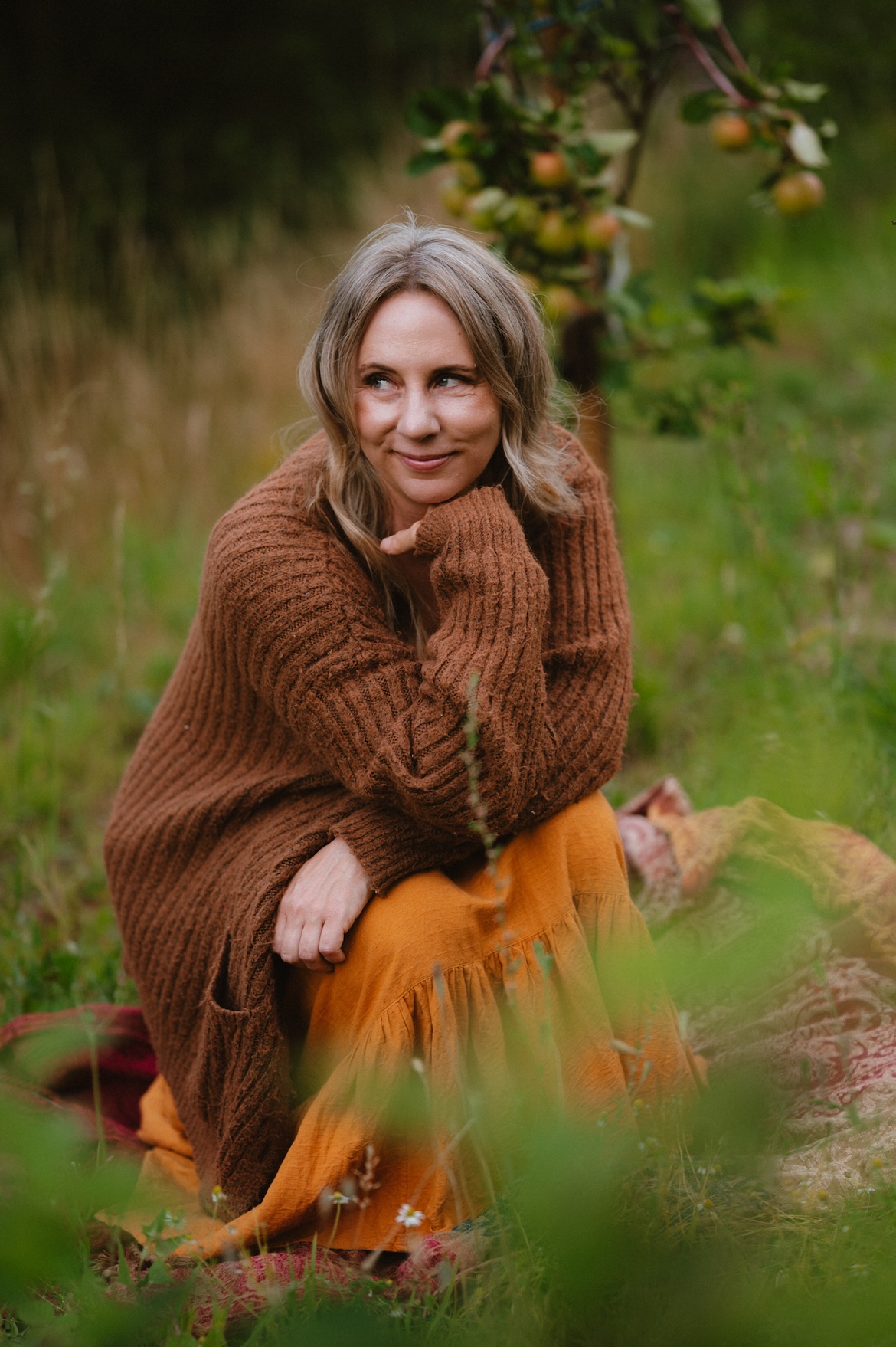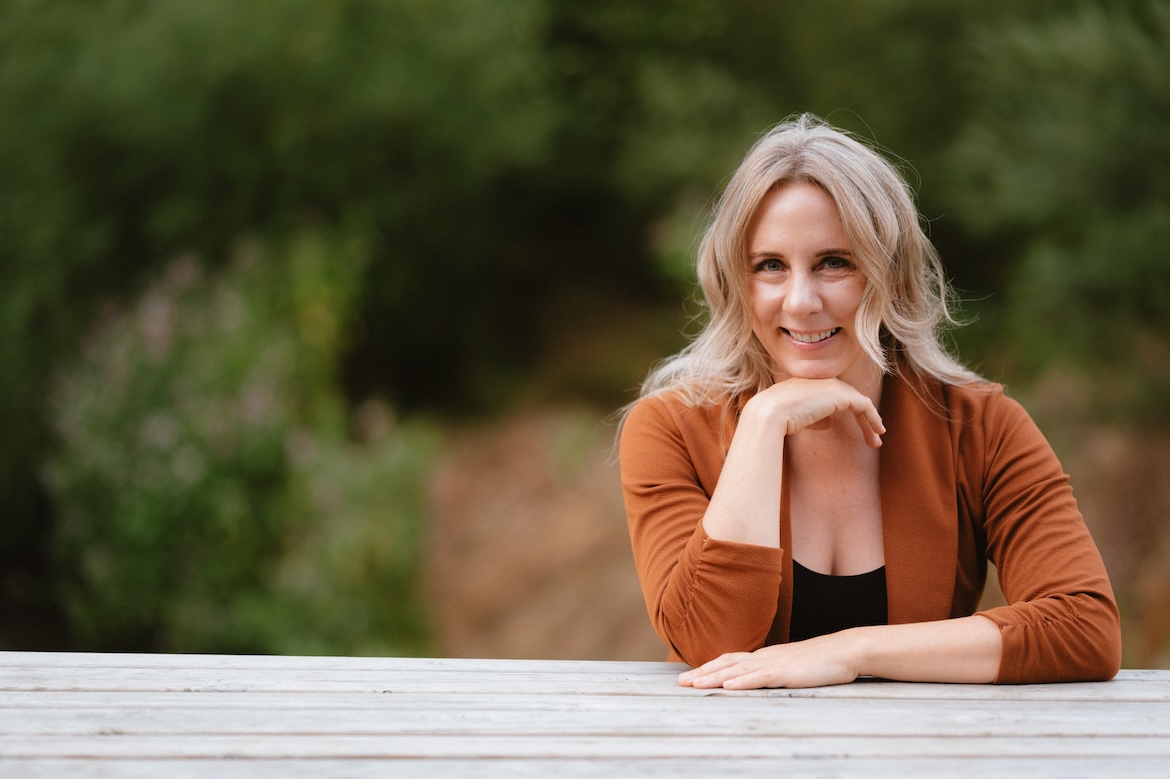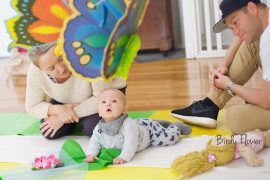April Marsh has dedicated her career to reimagining the way women experience pregnancy, birth and early motherhood. With a background as a birth doula, breastfeeding support leader and now a midwife, she combines professional expertise with personal insight to provide truly individualised care. Drawing on over eight years within the maternity system, along with her own varied experiences of birth, April is passionate about helping women navigate an often one-size-fits-all system, offering support that honours their intuition, history and unique needs. Here she talks to The Natural Parent Magazine about the inspiration behind Ray of Light, the challenges she continues to face, and her hopes and dreams for the future.
The passion: What inspired you to set up your business?
I started out as a birth doula and breastfeeding support group leader, so I have always been passionate about the holistic side of motherhood and passionate about women having good experiences of birth and breastfeeding. Now having eight years of experience within the maternity system (including my time as a student midwife), I can see where the gaps in the standard care are, and I want to provide a space where women can access more personalised care and support that is bespoke to their needs, whilst building community.
The launch: How did you start out in the beginning?
I was a birth doula for five years. I worked with individual families and supported them in their journeys, and was able to learn and experience just how wildly diverse and unique everyone’s experience is.
The innovation: What was the biggest breakthrough for you with your business?
Taking the massive step to re enter full-time education and train as a midwife as a single parent at the age of 37 was a massive pivot for me. I never imagined it would be something I would be able to do. The “medical side of things” was far from my comfort zone. However, I graduated with a first class degree, and received an award for my academic dissertation on the evidence around induction for post dates pregnancies. Having first-hand experience of providing midwifery care within the system has given me invaluable insight into what women are experiencing – and a passion to help women navigate their care in an industrial one-size-fits-all system that fails to see women as the unique individuals they are.

Yin and Yang: How do you balance work and family?
I have an incredible husband who supports me and takes an active role in parenting our toddler, as well as my two older teenagers.
I am employed 22.5 hours a week within the hospital maternity care system, while using the rest of my time to develop Ray of Light birth support services.
The drive: What challenges have you overcome?
Working within a system with set guidelines and parameters is a challenge. The maternity system is designed to treat whole population groups, not individuals. Currently, many of our policies and guidelines are based on investigations into “failings in maternity care” and not on robust clinical evidence. This is resulting in an increasing number of women becoming “high risk” during their pregnancies, or within their labours. Although the goal is to keep mothers and babies physically safe, more and more women are emerging from their experiences with trauma, and further research is needed on the long-term impact on the physical and mental health of mothers and babies who experience a high rate of intervention in birth.
Within my clinical practice, I work hard to ensure women understand their choices, but as I am based in an acute care setting, I don’t get the chance to build rapport and relationships with families and can only do my best to provide the best care within the circumstances they are in.
Within my private practice, I have the space and time to really get to know the women I work with. Knowing their individual stories, experiences and values goes a long way in providing the support and information they need to navigate the birth that is right for them.
When I had my first two children, I was not a midwife. I was young and classed as “low risk”. I had two very straightforward birth experiences both in the hospital and at home. In my most recent pregnancy, I was working full time as a midwife within the system. I was over 40, and no longer “low risk”. The standard care pathway included several interventions I did not feel would support me. With the knowledge I had, I was able to curate pregnancy care that was right for me, outside the standard guidelines and recommendations. I dealt with more fear, anxiety and worry in this pregnancy because of what I was exposed to on a daily basis, but used this as an opportunity to cultivate trust in myself, my body and my intuition. This experience has supported me in helping other women do the same.
One of the biggest challenges for me is the polarisation of the birth world. There is a growing movement of women who are moving away from systemic maternity care, including registered/licensed midwives and anyone with any sort of medical training, and choosing to birth with no one present who could potentially “sabotage’ their experience by intervening. I empathise deeply with this perspective. I absolutely love hearing the birth stories of women who choose to give birth this way, and I can absolutely handle generalised criticism of midwives and maternity services based on women’s lived experiences. In my last birth, I also chose to birth with just my partner, so, in short, I get it. I am absolutely not anti-free/unassisted birth. However, just as the medical maternity system is not a one-size-fits-all for women, neither is an ideology that believes that any kind of medical input in pregnancy and birth is inherently harmful.











